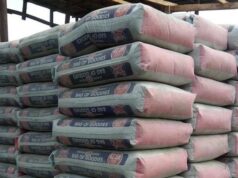Vice President Yemi Osinbajo has said Nigeria could in less than a decade banish food insecurity with the launch of the Special Agro-industrial Processing Zones (SAPZ) programme in the country.
Osinbajo said with the programme, the country could improve export earnings from agriculture, create millions of lucrative agro-industrial jobs and opportunities for its citizens, noting that the launch of the SAPZ heralded a “profoundly important moment in our agricultural odyssey”.
He said when he represented President Muhammadu Buhari at the launch of SAPZ in Anuja on Monday.
“If the Special Agro-industrial Processing Zones programme delivers on its objectives and we have no doubt that it will, then we would in less than a decade deal a fatal blow to food insecurity, create millions of good paying agro-industrial jobs and opportunities and radically improve export earnings from agriculture,” the Vice President was quoted as saying in a statement issued on Monday by his spokesman, Laolu Akande.
Osinbajo stated that the programme was “a clear plan for the industrialisation of agriculture, the deliberate development of value chains in the crops farmers grow and a pathway to net exportation of their produce.”
Highlighting the significance of the SAPZ programme to Nigeria, the Vice President noted that “the programme is now a critical component of our agricultural strategy, which is to accelerate the industrialisation of our agricultural sector with the objective of being ahead of our constraints in providing food, nutrition and wealth for the largest population in our continent.”
READ ALSO: AfDB commits $210m to Nigeria’s agro-processing zones
“The Nigeria Special Agro-Industrial Processing Zones programme is a government-enabled and private sector-led initiative that will to mobilise private sector investment to develop value chains for selected strategic crops and livestock in the Participating States.
“Nigeria will implement the first phase of the SAPZ programme with co-financing from the African Development Bank, the International Fund for Agricultural Development (IFAD) and the Islamic Development Bank (IsDB),” he added.
Osinbajo, who noted that the SAPZ programme was recently approved by the Federal Executive Council, said the programme “is a major cross-cutting value chain investment effort driven by the Federal Ministry of Agriculture and Rural Development, in alignment with the National Agricultural Technology and Innovation Policy of the Federal Government to incentivise agro-industrialization for private sector development.
“The SAPZ programme is a five-year programme, being implemented by the Federal Government of Nigeria (FGN) in partnership with the African Development Bank (AfDB), the International Fund for Agricultural Development (IFAD), Islamic Development Bank (IsDB), state governments and private investors, in seven (7) participating states (Kano, Imo, Kaduna, Cross River, Kwara, Oyo and Ogun) and the Federal Capital Territory (FCT).”
In the first phase, the Vice President that the programme was expected to achieve significant milestones, including reducing the country’s current food import bill through Import Substitution, boosting revenue from agricultural exports, creating wealth for rural farming communities, creating new sustainable jobs, especially for women and youths.
He added that the programme will also “stem rural-urban migration, boost rural livelihoods and revive stranded public and private sector funded assets; and decisively improve food security.
“SAPZ will also vastly improve the business environment for agro-industrial processors as it will improve their productivity and enable value addition for inclusive, adaptive economic growth.
“In the next phase we will bring on board another 18 states,” he said, adding that the SAPZs also stand to benefit from two salutary developments, technology and innovation, and the African Continental Free Trade Agreement (AfCFTA).
READ ALSO: Buhari orders minister to develop flood prevention plan in 90 days
On the opportunities that AfCFTA will offer, the Vice President said the agreement would open up for Nigeria to be the “breadbasket and the agri-business hub” of the region.
“This convergence of resource and opportunity is certainly auspicious for the great impact that we look forward to from the SAPZs. The operation of the SAPZs will also leverage on other Federal and State programs including the National Livestock Transformation Plan (NLTP: 2019 – 2028), and the Nigeria Industrial Revolution Plan (NIRP),” Osinbajo stated.
The event also featured remarks delivered virtually by the President of the African Development Bank (AfDB), Dr Akinwumi Adesina.
The AfDB President noted that despite its massive agriculture potential, Africa still faced huge challenges in meeting its food needs, with 283 million people that go hungry annually.
“Agriculture is critical for the survival of any nation. The most important role of any nation is to feed its people. Food is a fundamental human right,” Adesina said, adding that the AfDB was also supporting Nigeria, through Technologies for African Agricultural Transformation (TAAT) to produce more wheat, rice and maize.
“This support will allow Nigeria to cultivate by next year 900,000 hectares of rice, 250,000 hectares of wheat and 107,000 hectares of maize,” he said.
- EFCC chair: How Yahaya Bello declined invitation for interrogation - April 23, 2024
- EFCC chairman: I’ll resign if Yahaya Bello is not prosecuted - April 23, 2024
- EFCC: Yahaya Bello withdrew $720,000 from Kogi account to pay child’s school fee - April 23, 2024










